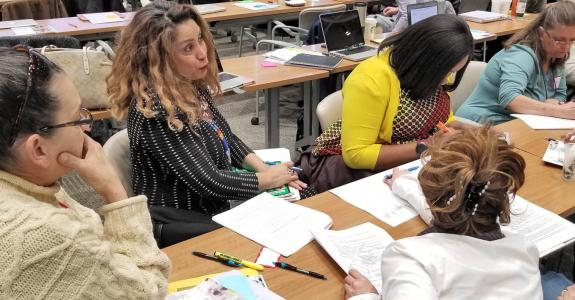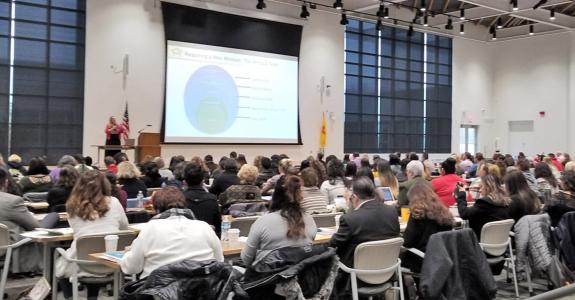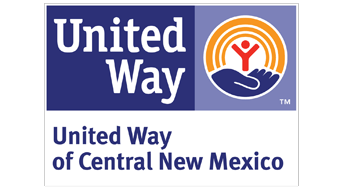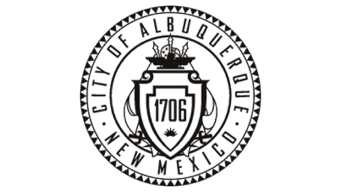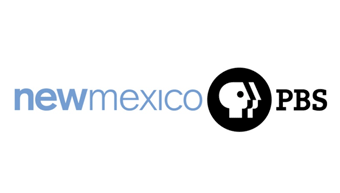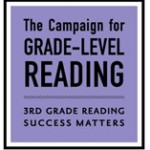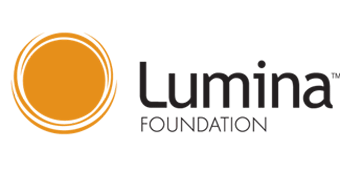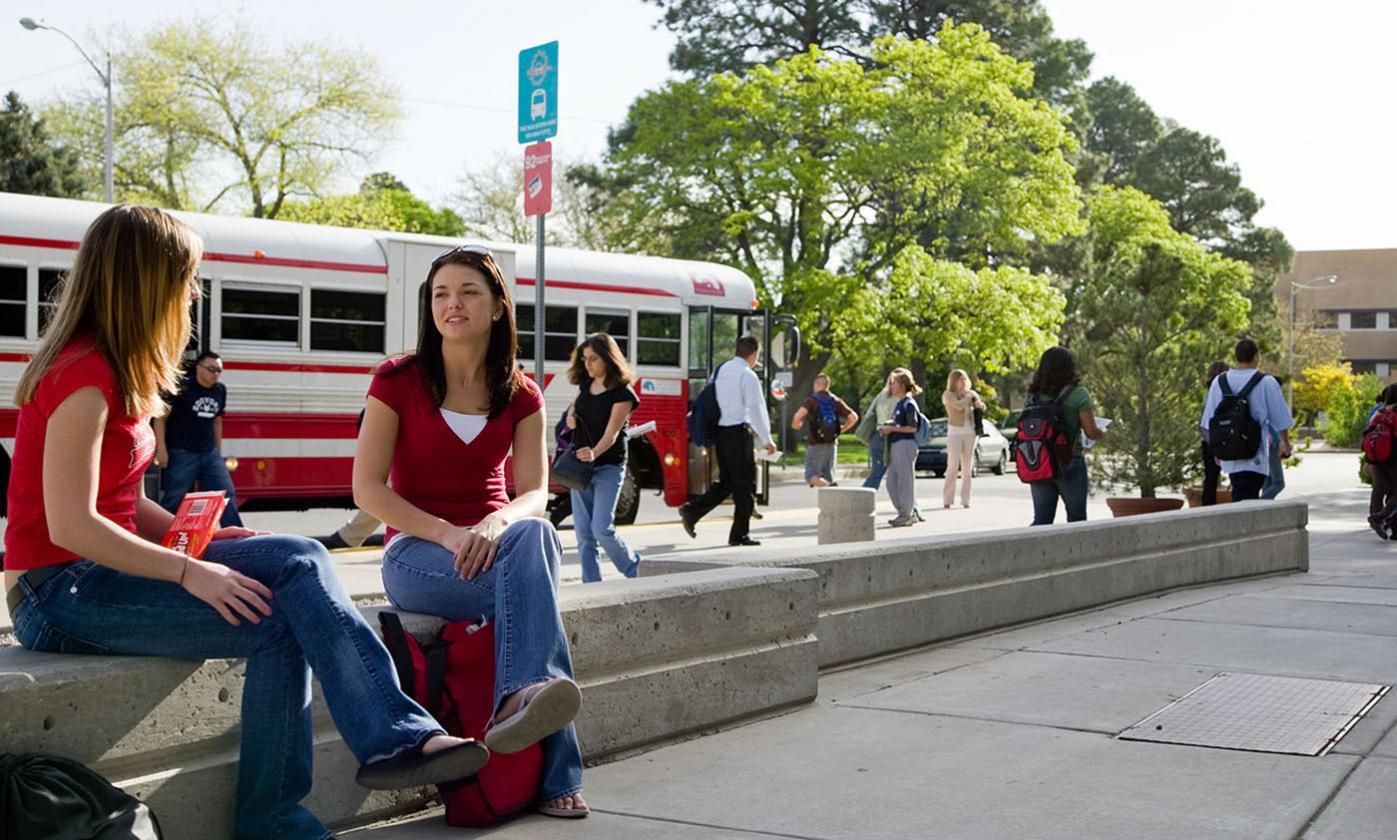
Having an impact on: Postsecondary Retention
Like many colleges around the country, the University of New Mexico (UNM) provides special support to first-year students who are not fully prepared for college-level coursework. It has been common practice at UNM and elsewhere to place students in non-credit remedial courses for additional preparation before enrolling them in college-level, credit-bearing classes—but that approach underwent a facelift at UNM in the fall of 2015.
For the 2015-16 school year, UNM discontinued its remedial “Introductory Studies” courses and launched Academic Foundations, an approach that places low-scoring students in a for-credit self-paced math course called Quantitative Reasoning (now Foundational Math), which teaches foundational skills and then transitions them into Math 101 as soon as they can test into this self-paced foundational algebra course, whether at two-weeks, mid-semester, or semester-end.
“Literally hundreds of students who would have spent 16 weeks in remediation under the prior regime are now eligible to take college math during their first semester at UNM,” reflects Kate Krause, dean of University College on campus.
The old remediation classes were a barrier to success for many students. Too many were placed in the courses, too many were discouraged by their lack of progress, and too many left UNM without graduating.
Academic Foundations has the potential to shave off time to graduation for hundreds of students, reducing the financial costs for them and their families. The Foundational Math course is challenging but the personalized support and the self-paced and computer-based format encourage students to advance as quickly as possible into Math 101. Once there, Math 101 has also been redesigned to include significant computer-based instruction through the UNM Math Learning Lab (MaLL). By taking these two self-paced courses in sequence, students who simply had a bad test-taking day or have often felt the math curriculum out of their grasp can progress past topics they already know and focus on areas they have struggled to comprehend.
The program has just finished its first year and is already showing promise in its potential to improve the college experience and chances of success of those students who enter the university a few steps behind.
Purpose and Goals
Academic Foundations courses replaced remediation at UNM. These courses provide students with foundational skills for college success. Critical Text Analysis supports students in their transition to collegiate level reading, and Foundational Math allows students to test as soon as possible into Math 101, a self-paced math course that prepares students for the core math requirement for graduating with a degree. The new model shaves off time to graduation for students who previously sank a semester into non-credit remediation courses, and based on pilots in other states, is expected to increase the likelihood that they will persist into their sophomore year.
Population served
Academic Foundations is designed for students who score lower than 18 on the ACT Math or Reading sections and so cannot enter many college-level courses. In fall of 2015, 515 students placed in Foundational Math and 225 in Critical Text Analysis, the foundational reading course.
Strategies Used to Achieve Goals
- UNM’s Academic Foundations program includes two primary components. First, students participate in a self-paced computerized math curriculum that provides opportunity for advancement to college-level math. Second, students receive support from UNM faculty and have access to a number of UNM resources to help them succeed. The specific strategies include:
- Lower cut-off score: UNM lowered the ACT cut-off score students would need in order to enroll in Math 101 from 19 to 18 and provided additional support for those students. This change alone made 190 students eligible for Math 101 at the beginning of the semester.
- Self-paced, computer-based learning: Academic Foundations students participate in a self-paced computerized math curriculum which allows students to focus on the skills they most need to develop and pass over material they have mastered.
- Self-directed learning support: In addition to the competency-based elements of the program that teach foundational content-area skills, Academic Foundations fosters self-directed learning in students by (1) exposing them to on-campus resources like Student Health and Counseling (SHAC) and the Center for Academic Program Support (CAPS); (2) providing academic tutoring; (3) requiring that they meet at least twice with a faculty advisor; and (4) teaching students essential college success strategies.
- Quick advancement to college-level math: Students can test out of Foundational Math and into Math 101 at two-weeks and eight-weeks rather than waiting to transition until the end of the semester. At any point during the semester students can progress to Math 101 material as soon as they complete the Foundational Math material.
Data Snapshot:
How much do we do?
- 190 students who started UNM in 2015 and scored 18 on the ACT Math assessment were automatically enrolled in college-level math (Math 101) and required to take a one-credit Math Learning Strategies support course. Under the old system, these students would have spent 16 weeks in Introductory Studies math before being allowed to enroll in college-level math.
- 515 students who started UNM in 2015 and scored below 18 on the ACT Math assessment enrolled in UNM’s new Academic Foundations Quantitative Reasoning course (now called Foundational Math).
How well do we do it?
- Of the 515 students who enrolled in Foundational Math, 7.8% (or 40 students) tested out of the course during the second week of class and were allowed to enroll in Math 101. An additional 6.8% (or 35 students) tested out of the course by the middle of the semester. In total, 86% (445/515) of the students who started Foundational Math in fall 2015 passed the class. The self-paced curriculum allowed these students to start working on Math 101 material as soon as they completed the Foundational Math curriculum, often before the beginning of the next semester.
- The Foundational Math program implemented more advanced curriculum, required a higher pass score, and served a student body with a lower average ACT score (no Math ACT 18 students). Under the new curriculum, 86% passed with a C or higher as compared to the past pass rate in Introductory Studies Math of 76%. More students were now eligible to take the next in sequence math course.
Is anyone better off?
- Under the prior system, students with an ACT score of 18 or lower would have spent the entire fall semester in a non-college credit remediation course. In Fall 2015 nearly 200 students – those with an ACT of 18 – were eligible to move directly into Math 101. In addition, of the students who began in Foundational Math, 39 students received credit for Math 101, 11 for Math 102, and 3 for Math 103 that same semester.
- For these students, the Academic Foundations shaved off an average of one semester toward the student’s degree.
- How did the QR/FM students do in Spring 2016?
- 71% (317/445) of those who passed QR/FM during fall 2015 signed up for a Math class at UNM in the spring of 2016. Of these, 79% (249/317) received credit for Math 101 in the spring, 50% (160/317) received credit for Math 102 in the spring, and 7% (21/317) received credit for Math 103 in the spring.
- A small group of students (21) received credit for higher-level math courses in Spring 2016. These courses satisfy UNM’s core curriculum requirement and in many cases are requirements for the students’ majors. This subset of students shaved off an average of two semesters toward their degrees.
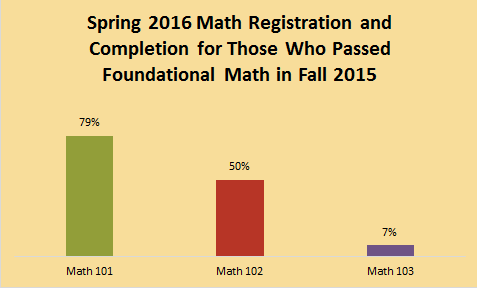
Data are presented using a Results-Based Accountability framework. See http://resultsleadership.org.
Website: http://firstyear.unm.edu/about/academic-foundations.html
Phone: (505) 277-6515
Email: sgrankin@unm.edu
To be selected for a Bright Spot, a program had to provide evidence that children or adults touched by their interventions were better off after participating. While the strength of evidence varied from program to program, all Bright Spots were able to show – at minimum – a correlation between participation in their program and positive outcomes. Those with stronger evidence provided pre- and post-data on participants in comparison to a similar group that did not participate.


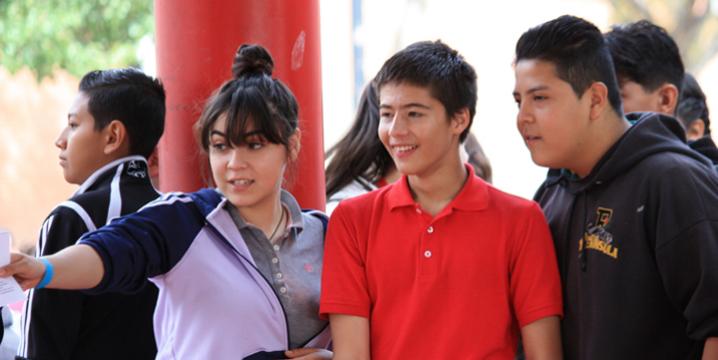
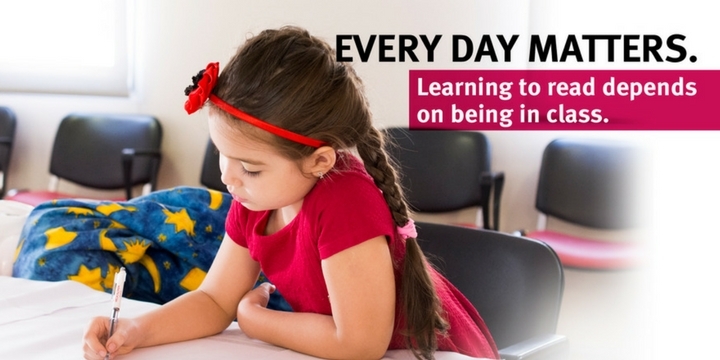
.png)

